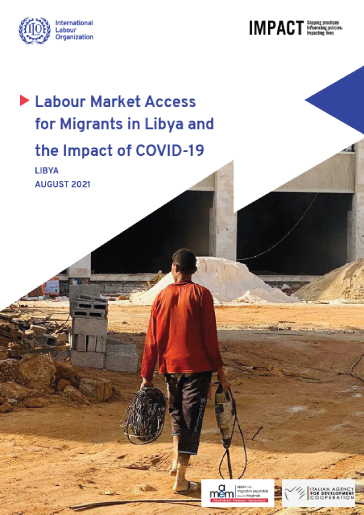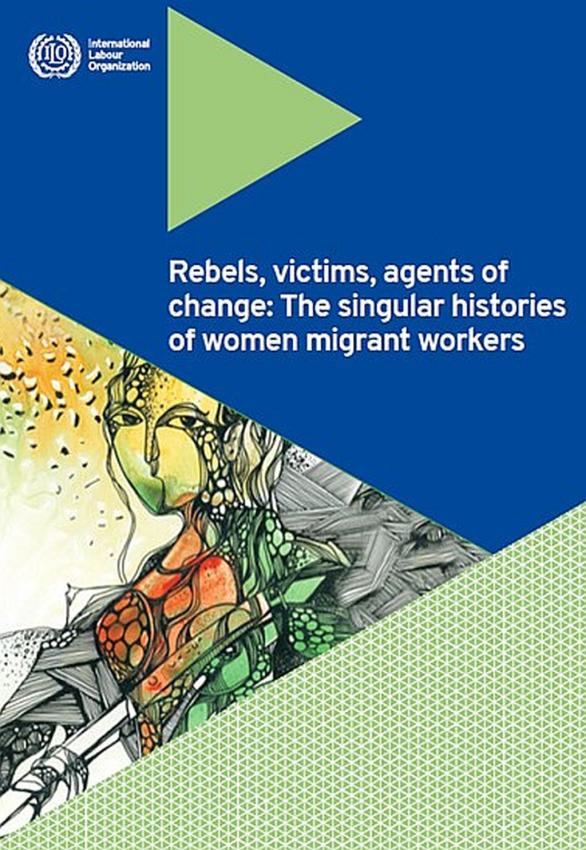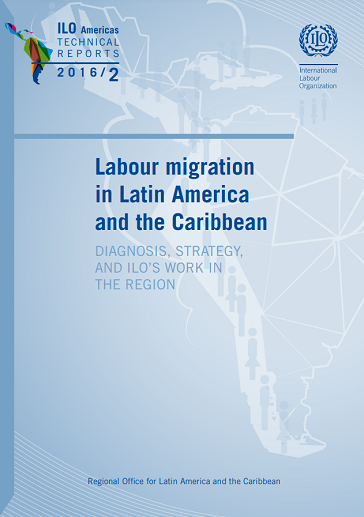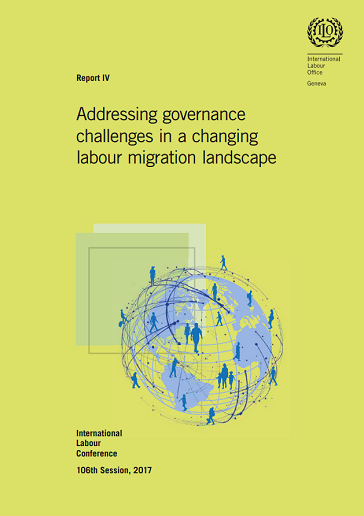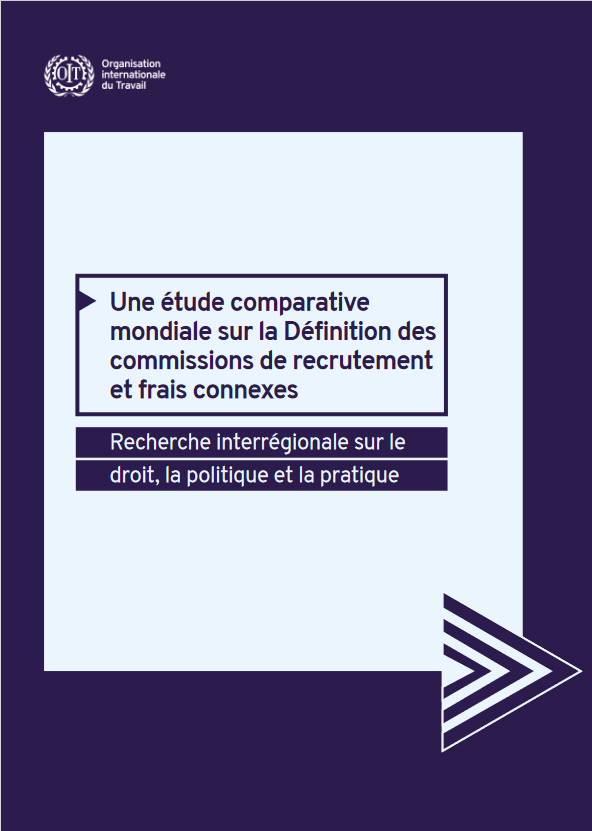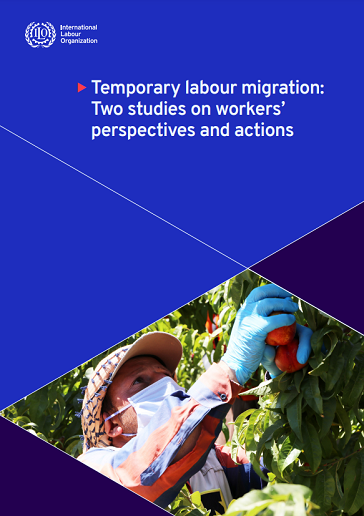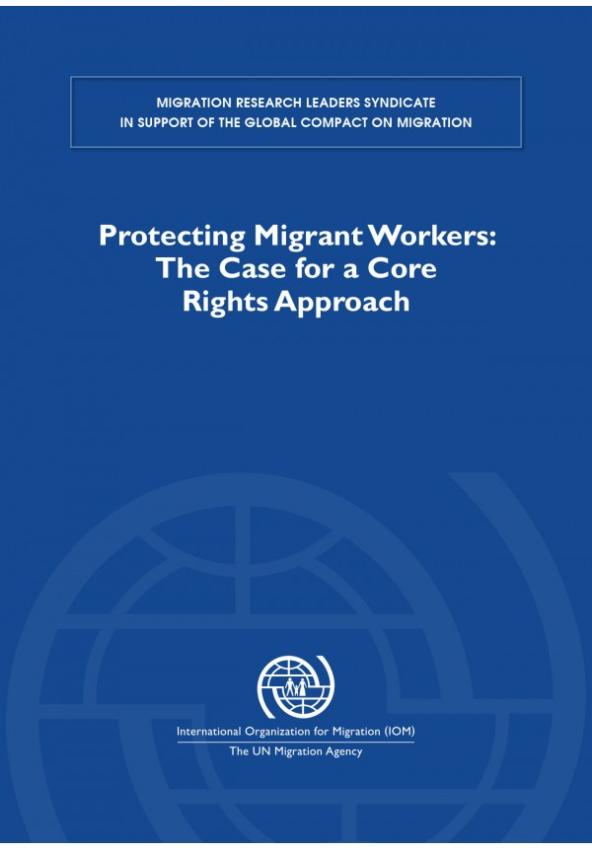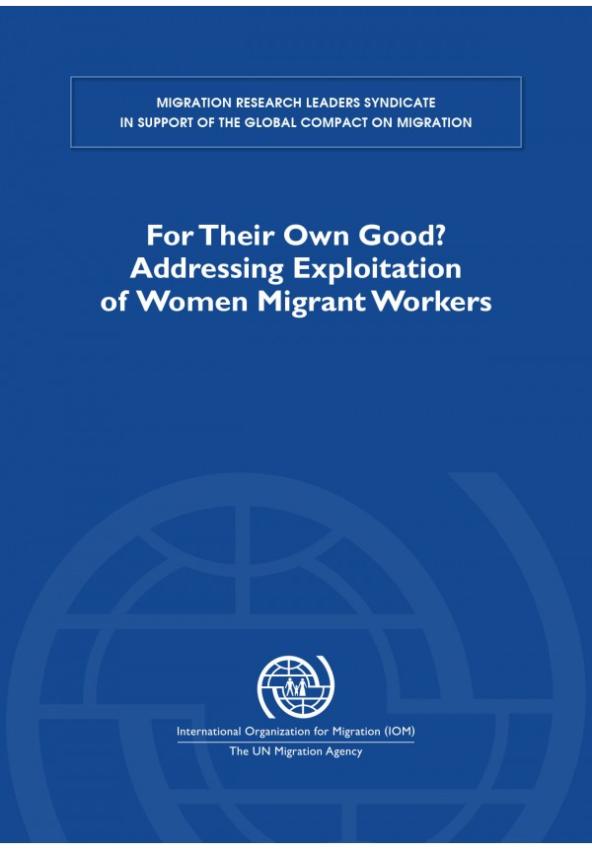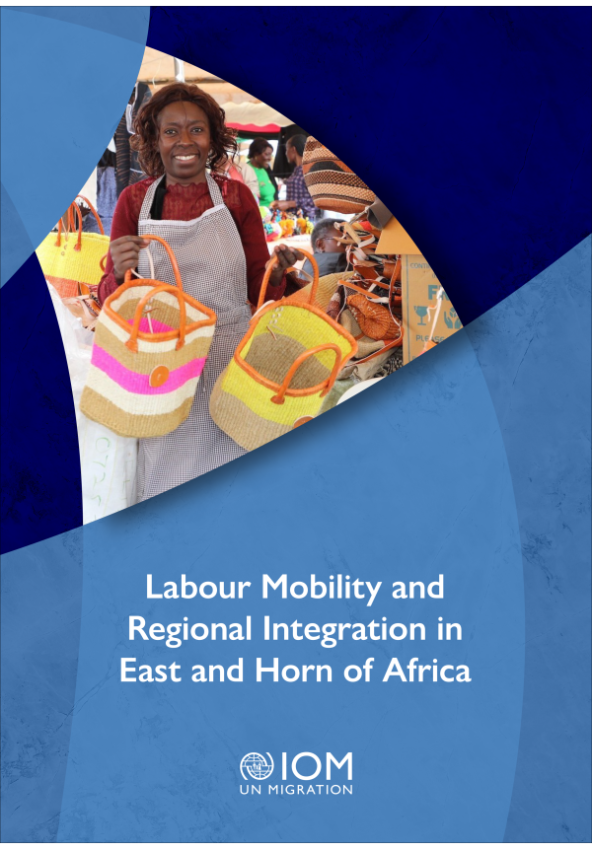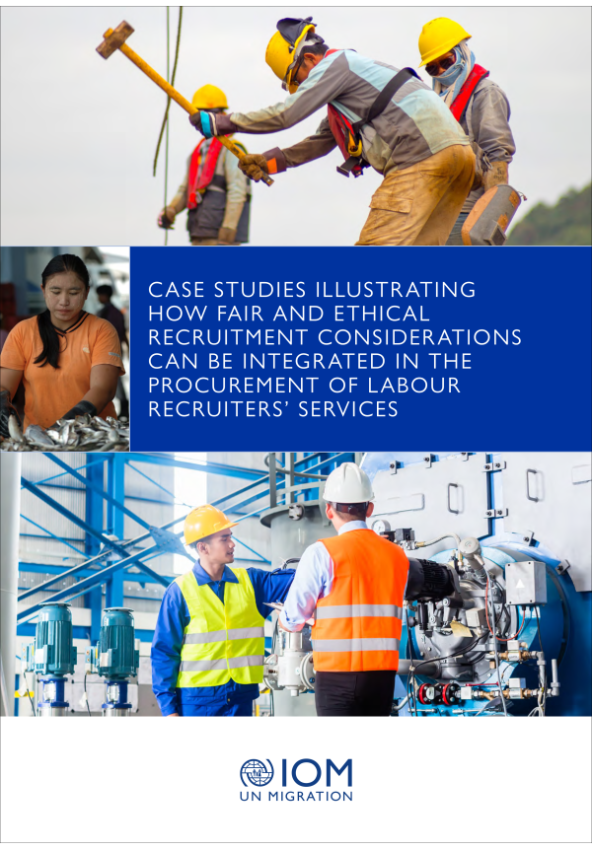Labour market access for migrants in Libya and the impact of COVID-19
The AMEM study in Libya, entitled ‘Labour market access for migrants in Libya and the impact of COVID-19’, wishes to provide a better understanding of the labour market in Libya with a focus on the situation of migrant workers. It shows the close link between recruitment channels and working conditions. It specifically underlines the importance of regulating recruitment in line with international labour standards, including migrant workers.
It allowed a better understanding of (1) migrants’ access to employment and the role of labour intermediaries, (2) employment characteristics and conditions of migrant workers, and (3) the impact of COVID-19 on migrant’s ability to access the labour market in Libya and to sustain their livelihoods.
Type of document :
Country/Region :
Year of publication :
Theme : , ,
Rebels, victims, agents of change: The singular histories of women migrant workers
The purpose of this ethnographic study is to shed light on how women view their migration and work abroad. The findings challenge conventional narratives on labour migration of women and bring out important perspectives that invaluably inform policymaking.
The research provides in-depth qualitative data on women labour migration, free of a priori judgment in a context where such activity remains contested in many parts of society. The aim is to present on women’s migratory journeys and in the process re-visit these gender constructions, as well as the social class ranking that associates honour and rank with a specific gender order. It is an important reference for academics, activists and Government practitioners.
Type of document :
Country/Region : ,
Year of publication :
Theme : , , , ,
Labour migration in Latin America and the Caribbean. Diagnosis, strategy and ILO's work in the region (ILO Technical Reports, 2016/2)
Labour migration is a complex phenomenon that presents both challenges and opportunities, and if well managed, can not only sustain but also increase economic growth in destination countries, as well as reduce poverty in countries of origin.
Type of document :
Country/Region :
Year of publication :
Theme : , , , ,
Addressing governance challenges in a changing labour migration landscape
This report aims to contribute to an informed and balanced discussion of migration and labour issues. It examines the role of the ILO and its constituents in achieving fair and effective governance of labour migration that benefits societies of origin and destination, protects the rights of migrant workers and their families, and enhances social cohesion.
Type of document :
Country/Region :
Year of publication :
Theme : , ,
Global Study on Recruitment Fees and Related Costs
A global study that examines the laws and policies of 90 countries, as well as numerous bilateral labour agreements and multi-stakeholder initiatives to identify the efforts Member States have made to regulate or prohibit recruitment fees and costs charged to workers. The global study supported the ILO’s adoption of the Definition of Recruitment Fees and Related Costs, which is to be read in conjunction with the ILO’s General Principles and Operational Guidelines on Fair Recruitment.
This Global Comparative Study on Recruitment Fees and Related Costs was prepared ahead of the Tripartite Meeting of Experts on Recruitment Fees and Related Costs, which took place in Geneva from 14 to 16 November 2018. It brings together the findings from five regional reports that examined 90 national government responses, 18 bilateral agreements and 12 multistakeholder initiatives. The analysis of findings provides a clearer picture of how Member States have addressed the issue of recruitment fees and related costs at the policy level. Overall, the report advances ILO’s work on promoting Fair Recruitment, in particular to reduce recruitment fees and related costs paid by workers.
Type of document :
Country/Region :
Year of publication :
Theme : ,
Temporary labour migration: Two studies on workers’ perspectives and actions
This report gathering two studies on workers organizations’ experience with temporary labour migration is part of a larger ILO project to gather knowledge on temporary labour migration.
The views on temporary labour migration vary greatly, including among ILO constituents. In light of the various concerns that the complex dynamics of temporary labour migration raise, it is crucial for the Office to capture constituents’ perspectives to enrich the debate. This document is an input from the Workers’ side to this process.
Type of document :
Country/Region :
Year of publication :
Theme : , , ,
Protecting Migrant Workers: The Case for a Core Rights Approach
This paper is part of the IOM Migration Research Leaders Syndicate’s contribution toward the Global Compact for Migration. It is one of 26 papers that make up a consolidated Syndicate publication, which focuses on proposing ways to address complex and pressing issues in contemporary international migration. The Migration Research Leaders Syndicate, convened as part of IOM’s efforts to extend policy and technical expertise in support of the Global Compact for Migration, comprises senior researchers from diverse geographic, disciplinary and thematic backgrounds. The Syndicate provides a channel for leading experts in migration to propose ideas to meet the ambitious goals outlined in the New York Declaration for Refugees and Migrants of September 2016.
In technical papers such as this one, Syndicate members were invited to identify and propose ways to resolve key conundrums currently posing challenges to international migration governance. To hone their proposals, they benefited from the input of advisors with experience in bridging policy and research, whether as senior non-migration scholars, former policy makers or prominent practitioners. The papers are short and crisp contributions that provide evidence-based, innovative ideas to improve international cooperation on fostering safe, orderly and regular migration.
Type of document :
Country/Region :
Year of publication :
Theme :
For Their Own Good? Addressing Exploitation of Women Migrant Workers
This paper is part of the IOM Migration Research Leaders Syndicate’s contribution toward the Global Compact for Migration. It is one of 26 papers that make up a consolidated Syndicate publication, which focuses on proposing ways to address complex and pressing issues in contemporary international migration. The Migration Research Leaders Syndicate, convened as part of IOM’s efforts to extend policy and technical expertise in support of the Global Compact for Migration, comprises senior researchers from diverse geographic, disciplinary and thematic backgrounds. The Syndicate provides a channel for leading experts in migration to propose ideas to meet the ambitious goals outlined in the New York Declaration for Refugees and Migrants of September 2016.
In technical papers such as this one, Syndicate members were invited to identify and propose ways to resolve key conundrums currently posing challenges to international migration governance. To hone their proposals, they benefited from the input of advisors with experience in bridging policy and research, whether as senior non-migration scholars, former policy makers or prominent practitioners. The papers are short and crisp contributions that provide evidence-based, innovative ideas to improve international cooperation on fostering safe, orderly and regular migration.
Type of document :
Country/Region :
Year of publication :
Theme : , ,
Labour Mobility and Regional Integration in East and Horn of Africa
This report analyses the role of the East African Community (EAC) Protocol on the Establishment of the East African Community Common Market (CMP) and the Intergovernmental Authority on Development (IGAD) Protocol on Free Movement of Persons in the IGAD Region (FMP) in facilitating labour mobility in the East and Horn of Africa (EHoA) region. The report provides an in-depth analysis of the legal and policy context of protecting the rights of migrant workers in the EHoA region, focusing on the EAC CMP and IGAD FMP and national labour provisions of the case study countries, namely Kenya, Rwanda and Uganda. It also discusses the opportunities and challenges of overlapping memberships for the implementation of the IGAD FMP and acceleration of the EAC CMP in relation to labour mobility and migrant workers’ rights based on the experiences of Kenya and Uganda. It also explores the impact of overlapping memberships and COVID-19 on labour mobility while taking into account gender considerations.
Type of document :
Country/Region :
Year of publication :
Theme : , ,
Case Studies Illustrating How Fair and Ethical Recruitment Considerations Can Be Integrated in the Procurement of Labour Recruiters’ Services
Although present literature provides guidance on fair and ethical recruitment, there is a lack of attention on how the procurement of labour recruiters’ services can be leveraged to prevent forced labour and exploitation in global supply chains. Labour recruiters have been essential not only in meeting the global demand for migrant labour, but also in ensuring the rights of migrant workers and upholding fair and ethical recruitment principles. This study focuses on the procurement process as an early step in managing forced labour risks for migrant workers when engaging with labour recruiters.
To provide practical examples on improving procurement practices and integrating fair and ethical recruitment standards in the supply chain management of business enterprises, this research uses case studies, key informant interviews, and desk reviews to identify common challenges and barriers to the adoption of ethical procurement practices.
The identified challenges and successes from actual cases further guide the recommendations to mainstream ethical recruitment in the procurement of labour recruiters’ services. In line with IOM’s mission, this study provides a strong foundation for building the case for labour recruiters to fulfill their responsibility to respect migrant workers’ rights.
Type of document :
Country/Region :
Year of publication :
Theme : , ,
Subscribe to the Fair Recruitment Initiative Newsletter
Sign up to receive news delivered to your inbox.

